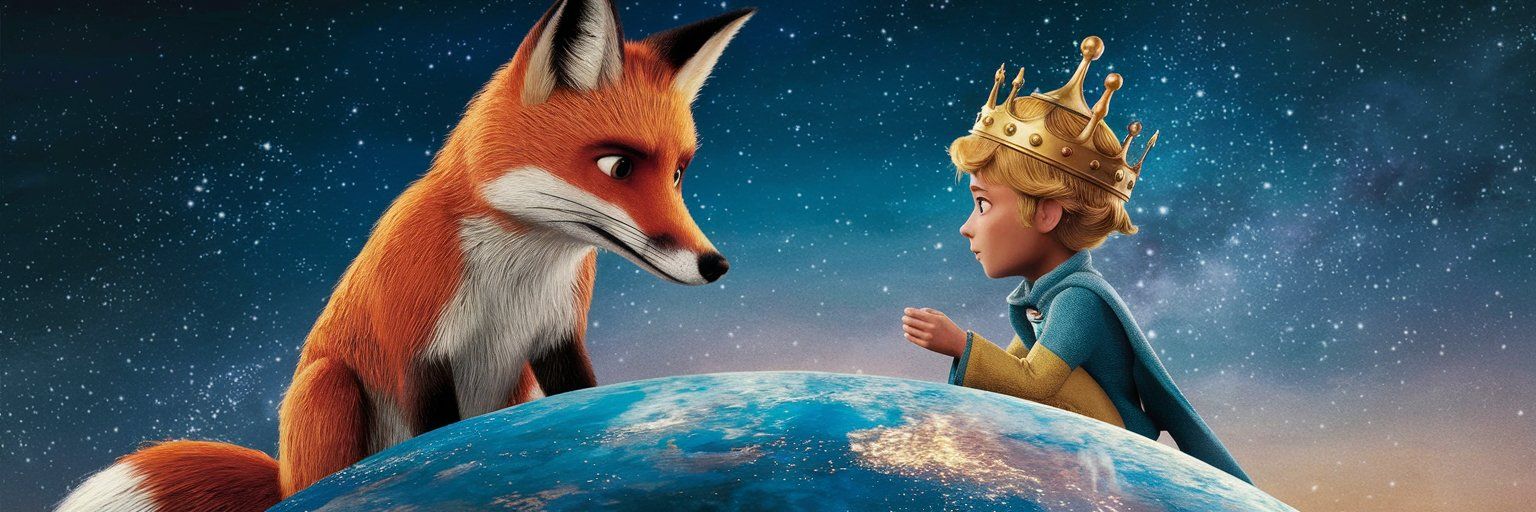
Philosophical Analysis of 'The Little Prince'
The Little Prince is often categorized as a children's story, but behind its apparent simplicity lies a profound reflection on human existence and our relationships. Antoine de Saint-Exupéry, through his masterpiece, presents us with fundamental philosophical questions about love, friendship, and the meaning of life.
The Invisible Essence
The famous phrase "What is essential is invisible to the eye" transcends its apparent simplicity. When the fox shares this wisdom with the Little Prince, it is not merely offering casual advice but articulating a deep critique of a materialistic society. In a world increasingly focused on the tangible and immediate, Saint-Exupéry invites us to reflect on intangible values that truly matter.
Critique of Capitalism
The protagonist's encounter with the Businessman who spends his days counting stars represents a biting critique of unfettered capitalism. "Grown-ups love numbers," observes the Little Prince, highlighting how we often lose sight of the true meaning of things in our obsession with quantifying and possessing. This passage, written in 1943, remains eerily relevant in our age of metrics, algorithms, and the relentless pursuit of productivity.
The Rose and Love Relationships
The Little Prince's rose, unique on his planet, symbolizes the complexity of love relationships. Through her, Saint-Exupéry explores themes such as jealousy, emotional dependence, and the need for care in relationships. When the Little Prince learns that there are thousands of roses similar to his but that his remains unique because it was "tamed," the author teaches us about the nature of true love: it is not physical exclusivity that makes something special, but the emotional bond established.
The Concept of "Taming"
The concept of "taming," explained by the fox, is particularly relevant in our era of liquid relationships. "You become eternally responsible for what you have tamed," says the fox, presenting a vision of commitment that strongly contrasts with the contemporary culture of disposable connections and superficial relationships mediated by screens.
Metaphors of Adult Society
The Little Prince's journey through different planets serves as a metaphor for various aspects of adult society. Each character he meets—the king without subjects, the vain man without admirers, the drunkard who drinks to forget he is ashamed of drinking—represents different forms of loneliness and alienation that permeate modern life. These caricatures, although written decades ago, remain painfully current.
The Aviator and Imagination
The very figure of the aviator, the story's narrator, represents the adult who has lost the ability to see the world through the eyes of imagination. His encounter with the Little Prince in the desert symbolizes an awakening to aspects of life that have been forgotten on the journey of growing up. It is a powerful reminder that maturity should not mean the complete abandonment of our capacity for wonder.
Themes of Death and Transformation
The work's ending, with the departure of the Little Prince, addresses complex themes such as death, loss, and transformation. The possibility that the protagonist may have died upon returning to his planet adds an extra layer of depth to the narrative, inviting reflections on the transient nature of existence and the importance of cherishing each encounter.
Conclusion
In essence, "The Little Prince" is not just an enchanting fable but a philosophical treatise disguised as a children's story. Its genius lies precisely in its ability to communicate profound truths through an apparently simple narrative. In an era marked by increasing complexity and alienation, its lessons on love, responsibility, and what truly matters in life are more relevant than ever.
- the_little_prince
- philosophy
- literature
- antoine_de_saint_exupery
- amor
- friendship
- reflection
- existence
- society
- literary_analysis